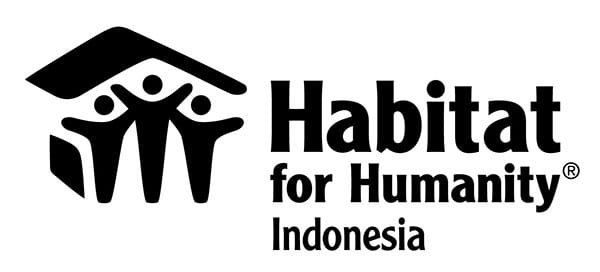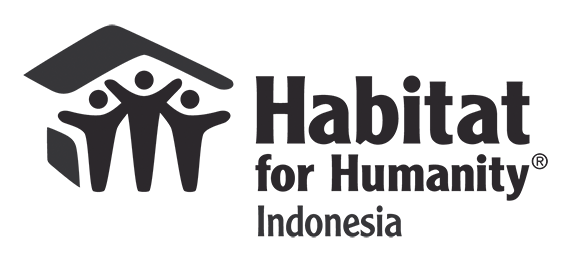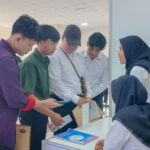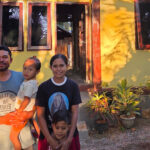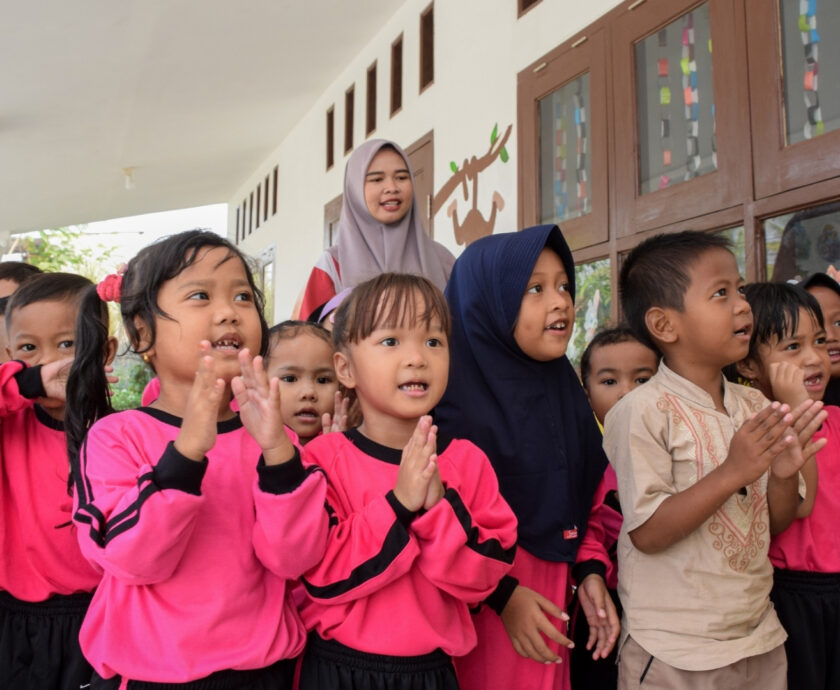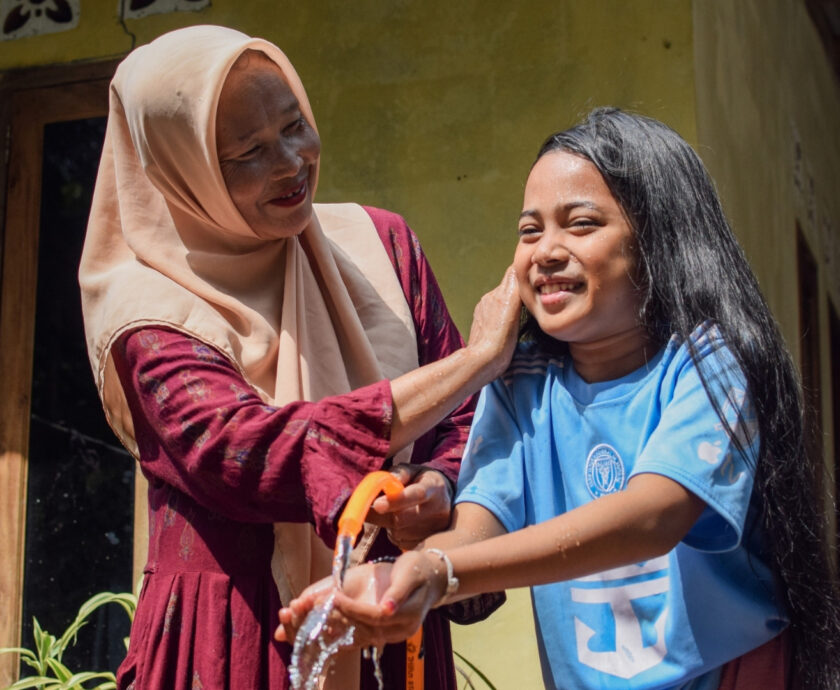Habitat for Humanity Indonesia, in partnership with PT Bumi Resources Tbk, has brought clean water access to 200 families and eight public facilities to promote healthier and more dignified living.
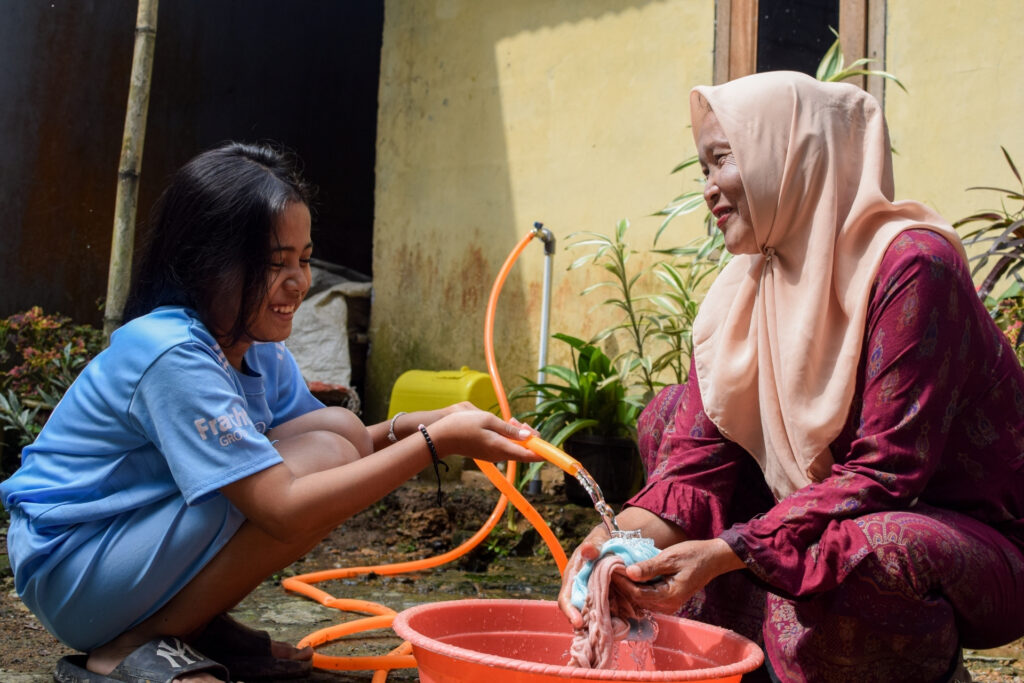
The morning sun warmly embraced Kampung Wangun 2, a small settlement in Karang Tengah Village, Babakan Madang Subdistrict, Bogor Regency. Gentle rays filtered through the trees, dancing across the rooftops before finally settling on the face of a mother bending down to wash clothes alongside her daughter.
Her name is Muliati. Beneath the splash of water flowing from her home’s faucet, a broad smile spread across her face. That day felt different. There was a calm she couldn’t hide, and behind her sparkling eyes grew the belief that her children’s future would be far better.
Muliati had long dreamed of a moment like this. For years, clean water had been a luxury beyond reach in her village. Despite living in what looked like a lush, green area surrounded by hills that should be sources of life, clean water remained elusive. Residents had to wrestle with an unreliable and inadequate water distribution system.
“I’m grateful to finally have clean water flowing straight from the tap,” Muliati shared with a smile. “The water is strong, clear—not murky like before.”
Her story is just one among many in Kampung Wangun 2, where access to clean water has long been a fundamental challenge. The local spring was managed independently, using makeshift plastic pipes installed without proper planning. The system was disorganized, and access unequal. Some residents received an overflow of water, while others had to wait their turn—or worse, received none at all.
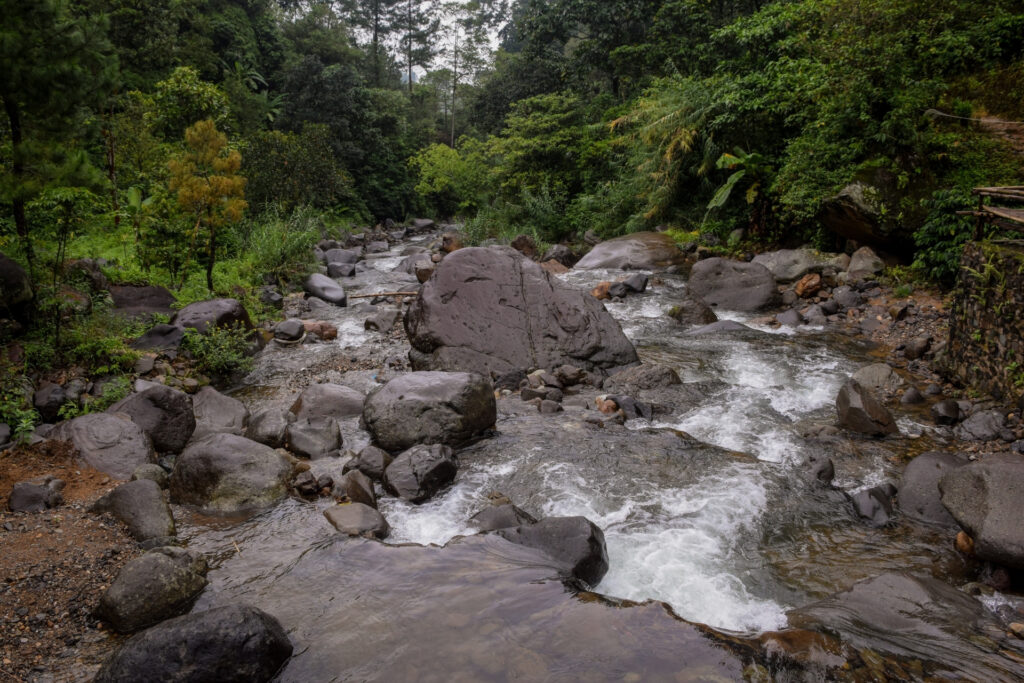
“Getting water here is very hard, especially during the dry season,” Muliati recalled. “Water distribution was uneven. Some households didn’t get any, and others received just a trickle.”
She will never forget the time her family went without water for four days. In a quiet voice, she said, “We had no choice but to buy water—two gallons at IDR 5,000 each. That IDR 10,000 should’ve gone to buy rice, but we had to divert it because we had no water.”
For families like Muliati’s, that situation severely impacted household finances. Water became an expensive need—ironically difficult to access, even though nature was right next door. They had to save water when it was available and stretch its use for everything from drinking to cooking and washing.
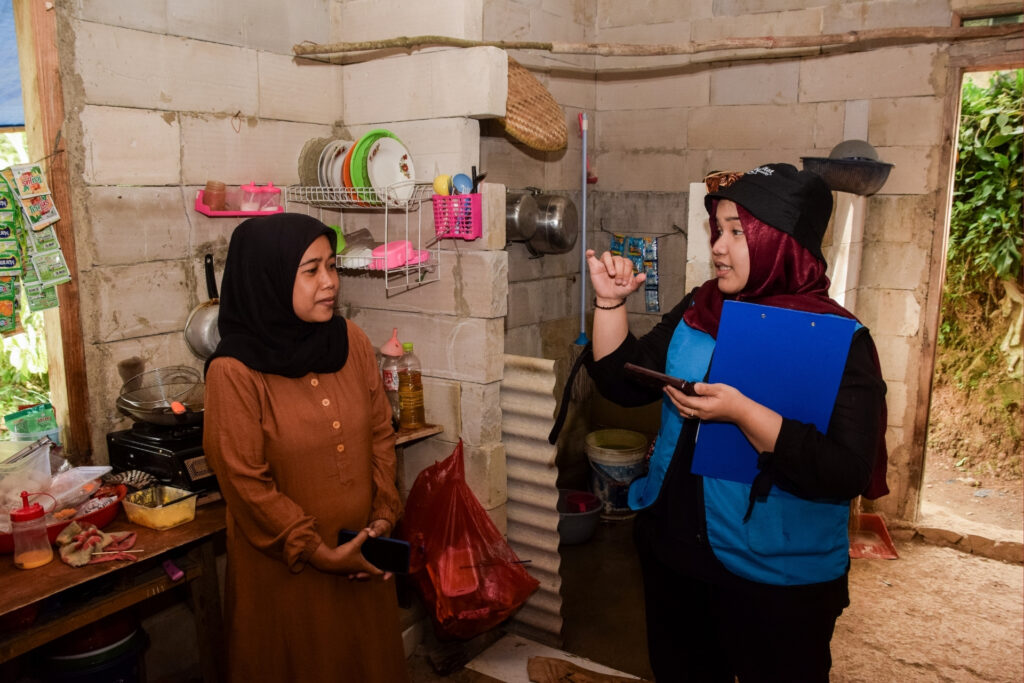
Read also: Photo: Improving Community Health through PHBS Training
A Collective Solution for Clean Water
In early 2025, winds of change began blowing through Kampung Wangun 2. Habitat for Humanity Indonesia partnered with PT Bumi Resources Tbk to launch a clean water access initiative.
But this wasn’t a one-way charity effort. Hundreds of residents were actively involved—from surveys and needs assessments to the construction of water infrastructure.
Community spirit and mutual cooperation became the driving force. Together, residents built four main water tanks: an intake tank, a treatment tank, a pressure break tank, and a reservoir tank. They also connected a High-Density Polyethylene (HDPE) pipe network—measuring two inches, one inch, and half an inch wide—spanning more than eight kilometers from the spring to households across four neighborhood units (RT).
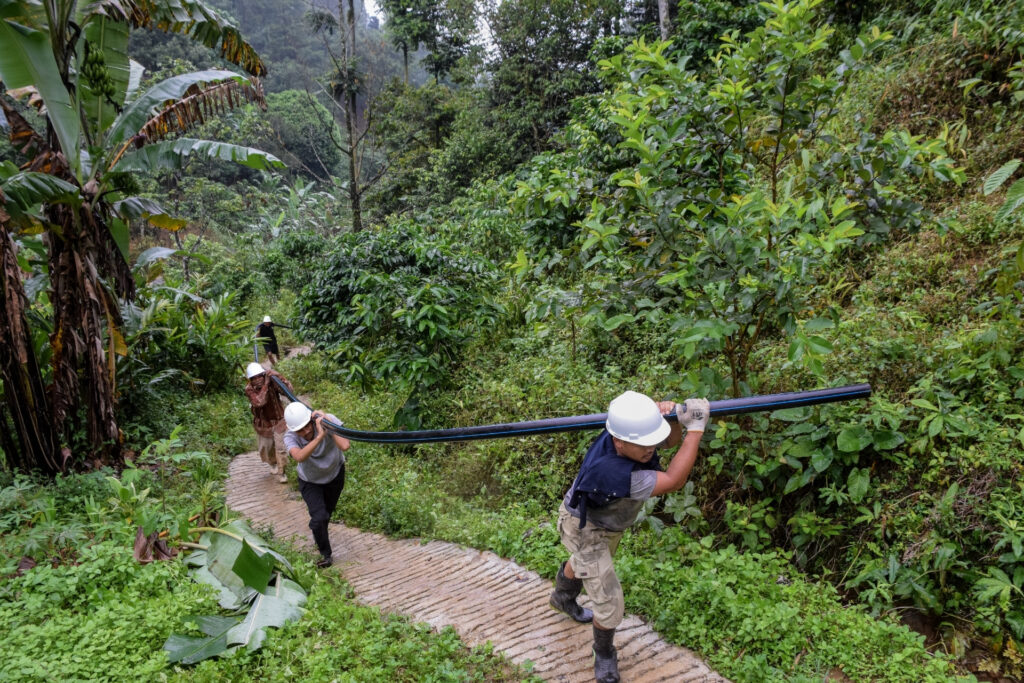
Today, clean water flows to over 200 household connections and eight public facilities, including four prayer rooms (mushola), two religious halls (majelis), one mosque, and a school serving hundreds of students daily. Each drop of water flowing from the bright yellow meters stands as proof of the community’s hard work and solidarity.
For PT Bumi Resources Tbk, this achievement is not just about numbers or completed connections. It is a real demonstration of the company’s commitment to supporting dignified and sustainable lives for the community.
“We believe access to clean water is a basic human right. Through this collaboration, we aim to ensure that our contribution brings real, direct impact to communities—especially those in rural areas that previously faced water access difficulties,” said Tofan Wibisono, Senior Manager of Sustainability and CSR at PT Bumi Resources Tbk, during the closing ceremony of the Water Access Program in Kampung Wangun 2, Bogor on Thursday, July 17, 2025.
He added that this type of collaboration is not just about providing aid, but about building trust and independence. “We greatly appreciate the spirit of community shown by the residents of Kampung Wangun 2. It shows that when people are involved from the start, the results can be far more sustainable and empowering,” he said.
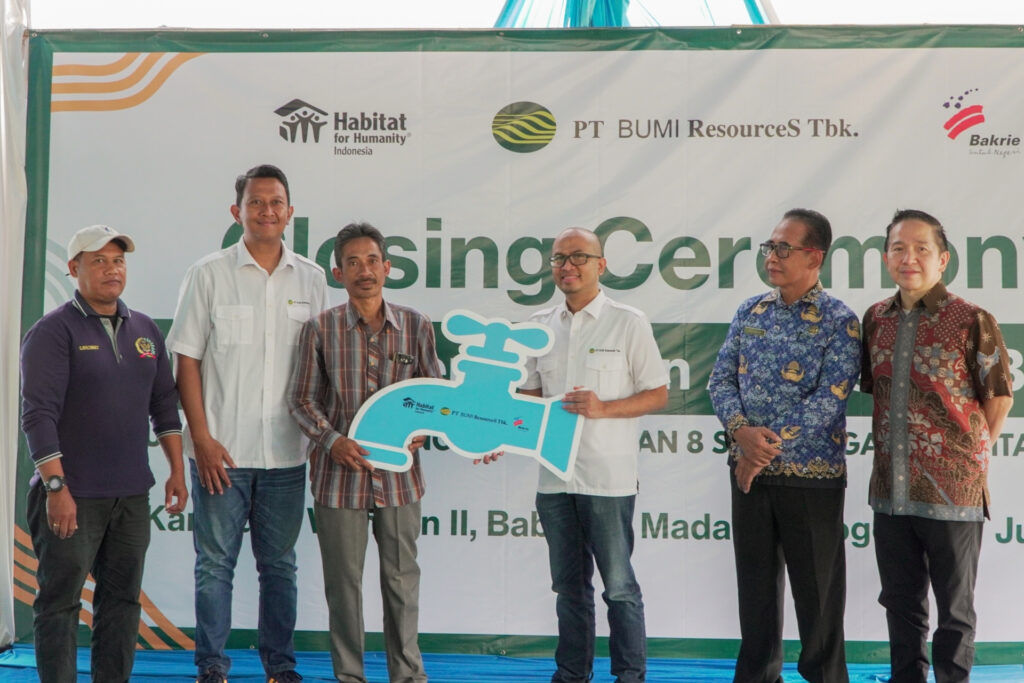
Read also: The End of Water Scarcity: Cicadas Village Embraces a New Life
Empowerment and Community Ownership
Haifa Nadira, Project Coordinator at Habitat Indonesia, emphasized that the program focused not just on physical infrastructure. “Most of the infrastructure was built by the residents themselves. We wanted to ensure they were not just beneficiaries but the main stewards of this water system’s sustainability.”
To support this, a water committee called Komite Air Sejahtera Bersama was formed, consisting of thirteen selected residents. Working voluntarily and without pay, they manage the system, set fair tariffs, and ensure smooth daily distribution.
Eman, the committee’s chairperson, explained, “Having the facilities is not the end—it’s the beginning. The important thing is how we maintain them. We regularly check the pipes, prevent leaks, and remind residents to use water wisely. We hope this facility lasts for decades as long as we care for it together.”
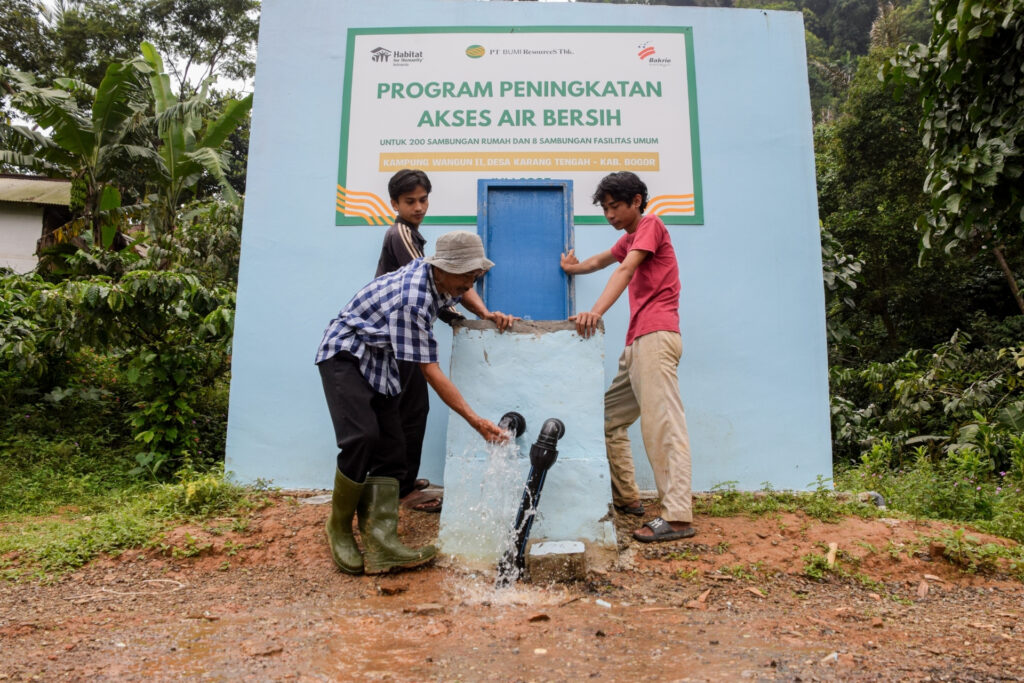
The program also included education and behavioral change initiatives. Habitat Indonesia provided hygiene training for 200 families, teaching handwashing techniques, sanitation practices, and even holding myth-busting games on cleanliness through interactive quizzes and themed board games.
Tami, a participant, shared her experience: “Now I understand more about household hygiene. Even small things I used to overlook matter a lot. Like how to properly wash hands or how to store drinking water hygienically. I’ll be more careful now to keep my home clean so my kids stay healthy.”
The program also encouraged environmental conservation. A total of 70 trees were planted around the spring, storage tanks, and residential areas—an ecological responsibility to preserve the spring, prevent erosion, and reduce drought risks in the future.
To ensure targeted and lasting impact, Habitat Indonesia also deployed enumerators to conduct social and technical surveys, ensuring every intervention directly addressed community needs.
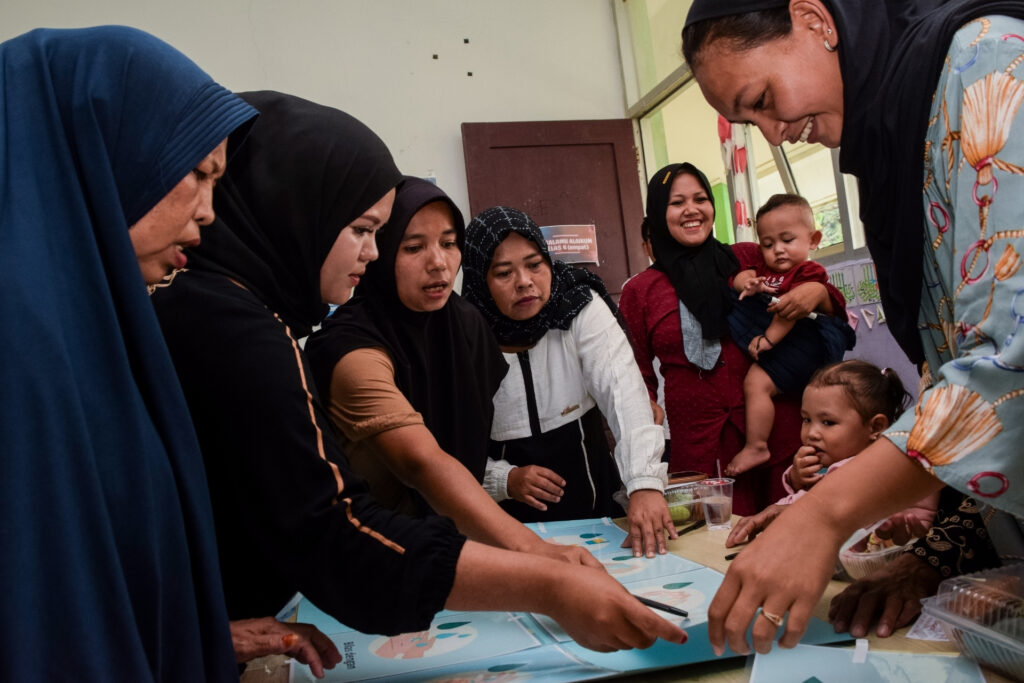
Read also: Habitat for Humanity Indonesia Brings Clean Water Access to Gunung Kidul
What happened in Kampung Wangun 2 builds upon the success of a previous program in Kampung Wangun Cileungsi, where 152 homes and 7 public facilities already had clean water access.
Suhandi Widipranata, Head of Karang Tengah Village, expressed his gratitude for the continued effort. “This is the second time Habitat and Bumi Resources have stepped in to address our clean water challenges. I’m truly grateful, as this program has brought real transformation to our village. I hope the facilities we now have will be maintained so that even our grandchildren can benefit.”
A Future Begins
For Muliati, today’s change is deeply felt. “It’s such a relief having water like this. I use it for washing, bathing, even boiling—it’s safe to drink too. The head of our neighborhood said it’s been lab-tested,” she shared with enthusiasm. “Now I don’t have to spend extra money on water. I can use that money for other needs—or even save a little.”
Her eyes gazed into the distance, imagining a lighter future—one where her children and grandchildren would never have to struggle just to access clean water. “I believe this water is a blessing. For my children’s future too.”
What Habitat for Humanity Indonesia and PT Bumi Resources Tbk have done in Karang Tengah Village is more than infrastructure development—it’s a long-term investment in life. Every drop now flowing from the taps addresses physical needs, but also nourishes hope, fosters health, and strengthens solidarity as a cornerstone of community resilience.
From the foothills of Kampung Wangun 2, we are reminded of one simple yet profound truth: that big change can start with something as basic as clean water. And from that clear water, a healthier, more just, and more humane future begins to flow.
(kh/av)
